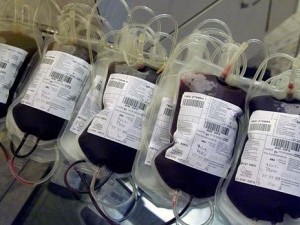Ghana said to require 250,000 units of blood annually
 A sensitization workshop for Pledge Clubs in the Eastern Region to help raise the number of voluntary blood donors and increase blood donation in the southern part of Ghana by 5,000 units within nine months has opened at Koforidua.
A sensitization workshop for Pledge Clubs in the Eastern Region to help raise the number of voluntary blood donors and increase blood donation in the southern part of Ghana by 5,000 units within nine months has opened at Koforidua.
The project, which is being piloted in the southern part of Ghana, covers the Greater Accra, Eastern Region, Western Region, Central Region and the Volta regions and is being sponsored by the Olusegun Obasanjo Foundation and Terumo BCT, a UK based non-governmental organization in collaboration with the National Blood Service of Ghana (NBSG).
Speaking at the opening ceremony Mr Michael Sottie of the NBSG said by international standards, Ghana needed about 250,000 units of safe blood annually to be on the safe side.
He said the figure, which is 10 per cent of the population of the country, could enable the country to provide blood to patients without any replacement.
However, Mr Sottie said, the country collects around 100,000 units of blood which often lead to shortages in some health facilities leading to the death of some mothers and children.
Mr Sottie said voluntary blood donation contributed 40 percent and family blood replacement provided 60 percent.
He said family blood replacement was not reliable because if a patient was transferred from the northern part of Ghana to Accra and needed blood replacement, it became difficult for the patient to mobilize family members at the north and then transport them to the south.
He said this forced such families to rely on unreliable sources of blood for replacement.
Mr Sottie said the project was aimed at training the Pledge Clubs or blood donation Clubs on how to recruit and maintain members to help increase voluntary blood donors.
Mr David Ahiadzro of the NBSG called for good customer services during blood donation campaigns to enable people who donate for the first time to come again.
He said people who would be joining the Pledge Clubs were expected to pledge to donate 25 units of blood in their life time or donate three times in a year.
Mr Ahiadzro said people who would be joining the club would be expected to lead safe lives and to be people who could always be relied upon to voluntarily donate safe blood for the project.
Source: GNA
